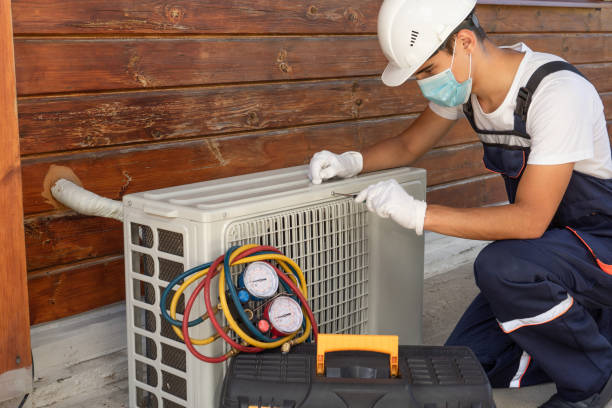Keeping your home at the right temperature throughout the year can be challenging. Whether it’s the heat of summer or the chill of winter, your comfort depends on your system running efficiently. With rising energy costs, improving system performance also helps save money. This guide will walk you through simple ways to boost your system’s efficiency and ensure year-round comfort.
Understand Your System
The first step is understanding what kind of system you have. Most homes rely on central heating and cooling, often powered by heat pumps, furnaces, or air conditioners. Knowing how your system works makes it easier to spot issues and maintain performance. Check your manual or system label if you’re unsure. Also, consider the age of your system. Older systems tend to lose efficiency over time. If yours is over 10–15 years old, it may be worth comparing its performance to current models.
Change Filters Regularly
Clogged filters reduce airflow and make your system work harder. This leads to higher energy use and reduced comfort. Filters should be checked every month, especially during heavy use seasons like summer and winter. In general, replace filters every 1–3 months depending on the type and how much dust or pet hair is in your home. Clean filters mean better airflow and improved air quality.
Seal Air Leaks
Air leaks around windows, doors, and ductwork can let your heated or cooled air escape. This forces your system to run longer, using more energy. Sealing leaks is a low-cost fix that can have a big impact. Use weather stripping around doors and caulk around windows. If you suspect leaks in your ductwork, consider a professional inspection. Sealed ducts improve system performance and reduce energy waste.
Use a Programmable Thermostat
A programmable or smart thermostat lets you set the temperature based on your schedule. This avoids heating or cooling your home when it’s not needed. For example, you can lower the temperature during the day when no one is home, then raise it before you return. These thermostats can cut down on energy use without sacrificing comfort. Some models even learn your habits and adjust settings automatically.
Schedule Regular System Checkups
Routine service keeps your system running smoothly. A well-maintained system works better and lasts longer. Professionals can spot small issues before they turn into costly repairs. It’s best to schedule service in spring and fall—before the heavy-use seasons begin. That way, your system is ready to handle extreme weather. Reliable HVAC Maintenance is key to keeping everything in top shape.
Improve Home Insulation
Good insulation keeps warm air in during winter and cool air in during summer. Without it, your system has to work harder to keep temperatures stable. This adds to wear and tear and raises your utility bills. Focus on your attic, walls, and basement. Even adding insulation in a few key areas can make a noticeable difference. Don’t forget to check for drafts and seal them as needed.
Keep Outdoor Units Clear
If you have an outdoor condenser unit, make sure it has space to breathe. Leaves, branches, and other debris can block airflow and hurt performance. Clear at least two feet around the unit on all sides. Also, gently clean the fins and remove dirt buildup. This allows heat to escape more easily, helping the unit run more efficiently. Be sure to turn off the power before doing any cleaning.
Don’t Ignore Strange Noises or Smells
If your system starts making unusual noises or emitting odd smells, don’t ignore them. These can be early signs of a problem. Catching issues early can prevent bigger, more expensive repairs. Sometimes the fix is simple, like replacing a loose belt. Other times, it may require help from an HVAC contractor. Don’t delay getting professional advice if something seems off.
Use Ceiling Fans to Assist Airflow
Ceiling fans don’t lower the temperature, but they help circulate air. In summer, fans create a wind-chill effect. In winter, reverse the direction to push warm air down from the ceiling. Using fans means your heating and cooling system doesn’t have to work as hard. Just remember to turn them off when you leave the room.
Final Thoughts
Staying comfortable at home doesn’t have to mean higher energy bills. Small changes can make a big difference in how your system performs. Regular upkeep, smart upgrades, and professional checkups all play a role. Take the time to inspect your system and your home. Stay on top of maintenance and respond quickly to warning signs. A little effort goes a long way in keeping your home comfortable all year.









